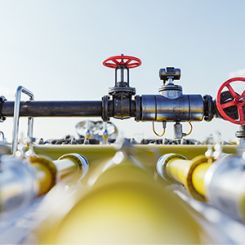Plus what they wish they learned in college.
10/29/2018
Pumps & Systems spoke with newcomers to the pumps industry to shed some light on what people are lacking from their education, what they hope to get from training as their career progresses, and the hand companies can play in shaping the instruction engineering schools are providing students Here is what four recent graduates had to say about their education and training.

Andrew R. Demko
Ph.D., Mechanical Engineer, U.S. Naval Air Systems Command, Combustion Sciences and Propulsion Research Branch Education: I received my B.S. in mechanical engineering at Tennessee Technological University in 2011, my M.S. in mechanical engineering from Texas A&M University in 2013, and my Ph.D. in mechanical engineering from Texas A&M University in 2017. What kind of training did you get while in school or just out of school? While in school I received most of the theoretical background from the classwork and applied that knowledge in the research I conducted during my time in graduate school. What types of training would have helped you for your current job? Having a broad scope of training is good. Many of the skills you need are job-dependent, and having the ability to adapt to the environment is the best training to have on top of the technical background. One of the best forms of training would be to talk with someone in your field or desired field of work and learn what you can from them in both technical and administrative subject areas. How much more training do you plan to get? The common response is “you are to engage in lifelong learning,” but in order to be successful, you do need to continually train. Thus, my plan is to participate in the training that is relevant as I learn more about what I need to do to progress. Why did you choose your job/profession? The reason I chose combustion science and propulsion is based on my interests. Growing up I loved everything related to flight and space travel, as well playing with fire. I realized that I could pursue a career in both of those things by studying combustion and working for the United States Department of Defense (DoD) allows me the opportunity to work with the most state-of-the-art technology. What type of training would you tell people to get? I would recommend pursuing a graduate degree. It really does benefit you to gain unique laboratory experience with the more in-depth technical knowledge that is harder to obtain later in your career. Also, learn to be flexible, but focused, in the work you are given.
Hassan Gomaa
Technical Project Manager, Arundo Analytics Education: Ph.D. in Aeronautics Engineering (2014), University of Stuttgart. What kind of training did you get while in school or just out of school? Classical engineering education (math, physics, fluid mechanics, thermodynamics, structural mechanics, turbomachinery, etc.); people and business management, project management, Six Sigma Tools. What types of training would have helped you for your current job? Applications in internet of things (IoT) and machine learning. How much more training do you plan to get? A lot. Continuous learning is key to personal and professional development. Why did you choose your job/profession? To work with the world’s most talented team to disrupt heavy asset industry through machine learning. What type of training would you tell people to get? Industrial digitalization.
Keith Gary
Research Engineer, GE Global Research Niskayuna Education: I received a B.S. in marine engineering from Texas A&M Galveston in 2015. I earned an M.S. in mechanical engineering from Texas A&M College Station in 2017. What kind of training did you get while in school or just out of school? I worked in the Turbomachinery Lab at Texas A&M during the time I was earning my master’s. The training I received includes the basics of how to tolerance a drawing and why it is toleranced and dimensioned; how to communicate with machine shops to have parts manufactured and follow the work until delivered; how to use computer aided design (CAD) to create parts and drawings; and how to choose instrumentation for a test rig based on what measurements are important and what the data acquisition is capable of. I learned how to take analog voltages from a test rig and convert them to calibrated digital values for post- processing; data acquisition basics—understanding what sampling rate to use, number of samples, Nyquist frequencies, DAQ card/chassis resolution, and what excitation frequencies are most effective; assembly and instrumentation of test rigs including precision alignment of a rotor system; how to use software tools such as Automated Diagnostics for Rotating Equipment (ADRE) and LabVIEW to analyze live data for test rig health; how to write code in MATLAB to process data and produce results; and dealing with a sponsorship company—discussing project shortfalls and successes and project direction and giving presentations. What types of training would have helped you for your current job? My experiences at the Turbo Lab translated very well. I had an unusual amount of issues with the test rig I worked on in grad school that helped me dive deep into understanding my test rig and its physics. How much more training do you plan to get? I work at a research facility so there is always something new to learn. Why did you choose your job/ profession? I knew after working in the Turbo Lab that I wanted a research position. It allows me to work on every aspect of mechanical engineering. What type of training would you tell people to get? I think every engineer should learn to code in some language. I would recommend learning about data acquisition and signal processing.

